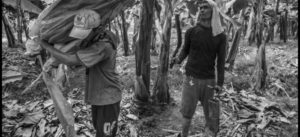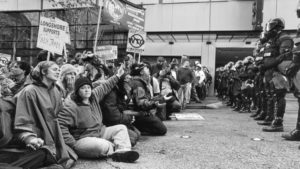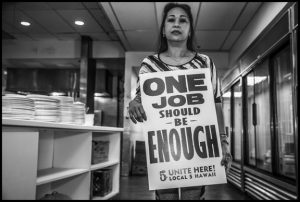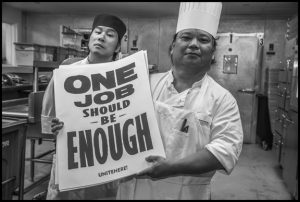From FoodFirst,
by David Bacon, © 2020

Copyright David Bacon
Thirty years ago many banana workers in the Philippines made a radical change in their work and lives. They transformed the militant unions they had organized to wrest a decent living from the multinational corporations that control much of the world’s food production. Instead of working for wages, they used the country’s land reform law to become the owners of the plantations where they had labored for generations.
It was not an easy process. They had to fight for market access and fair prices against the same companies that had been their employers. But they developed a unique organization to help them, that provided knowledge and resources for forming cooperatives. Twenty years ago FARMCOOP and these worker/grower cooperatives defeated the largest of the companies, Dole Fruit Company (in the Philippines called Stanfilco). As a result, today the standard of living for coop members has gone up, and workers have more control over how and what they produce.
FARMCOOP became the source of everything from financial planning and marketing skills to organic farming resources and political organizing strategy. FARMCOOP then developed an alliance with one of Mindanao’s indigenous communities, helping it start its own coops that combine the use of local traditions with organic and environmentally sustainable agriculture.



